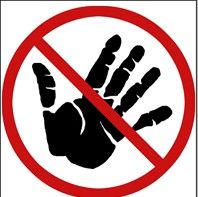Sunday was an interesting day: as in many international meets, we had the chance of comparing local institutional components for sports development in different countries. As one of us described in detail the conditions in which corruption and/or outright organized crime ruled the strength sports, the fights and other sports in South America, our friend described even more efficient totalitarian, corrupt and criminal control in Japan. So, let’s see: we have South America as an obvious case study; we have Eastern Europe that “everybody knows” (one of those things you will never prove, but anyone with some knowledge of what goes on knows) is controlled by both the government and the mafias; Turkey; South Africa.
Well, that covers basically all the countries we have information on. What do all the countries where corruption and mafias rule the sports with iron hand have in common? Government “incentive” or control. It is through federal, state or city governments that mafias (organized crime) exert their control over sport.
In some cases the government itself is an integral part of organized crime. All it takes is for a federation “sports-lord” to be accepted to the inner circle and it’s done.
Does that mean we think sports doesn’t deserve incentive from the State? The arts? Science? They all do, but limits and clear guidelines and transparency must be established.
Basic science needs to be strongly supported by the State, and that is a case that has been disputed and defended since the first formal Science & Technology government policy was adopted by the United States in 1945 (after the Endless Frontier report, by Vannevar Bush). Scientists would, at the same time, be protected from the “outside world” to pursue internal issues established through purely internal dynamics of each discipline, and follow agendas strongly determined by the government, in the applied sciences.
Since then, and this is by no means a consensus, the idea of an environment more permeable to “outside” players in both the basic and applied sciences as being not only the reality, but not a bad thing at all, has been the focus of attention for scientists, decision-makers and science studies scholars.
The arts and the sports follow a similar line of arguments relative to their being the object of public support and ruling or not. Is it important for a country to have a social space for these components of its culture? We believe so. But how much of State intervention is needed for that to happen?
Looking back especially into the history of totalitarian governments, the answer is: as little as possible.
Heavy State intervention in the sports is part of a dark heritage of war and hate: the Cold War. That was when the States most strongly intervened in sports. The reason was none related to culture, education or even health: it was war and political supremacy.
As the Berlin Wall fell and the Cold War faded into other forms of international conflict, sport lost its central political role. The tradition of government intervention, though, remained in many countries. As these gave rise (or, rather, visibility) to powerful criminal organizations, so did the sports.
Corruption – rather than ball games, fights, races or weights lifted – became the name of the game. And that can only take place when social relations are strongly coercive. In other words, in countries culturally familiar to totalitarian rule.
After this long digression into international politics and cultural policies, we look back into our little world of powerlifting and it makes a lot of sense that the messy state of multiple organizations which try their best to survive by fundraising the way they can – either by being attractive to more lifters or by producing revenue in some other way – is best seen in the United States. Basically, any lifter can do whatever he wants, lift wherever he wants and follow whoever he wants. In most other countries, the options – if there are any – are different varieties of delinquent organizations.
That said, it also makes sense that some suspicions are raised when amazing numbers show up in videos from these countries where the law of silence is imposed over what the powers that be decide is the official version. It also makes sense that it is in the United States – the paradigm of pluralistic democracy – that we see the growth of organizations where those that reject delinquent “games” can gather and carry on their version of powerlifting, in the most purely autotelic form: for the love of the Art.
(next, an article about how the State can adopt policies that support the sport without just growing more mafias inside it)

